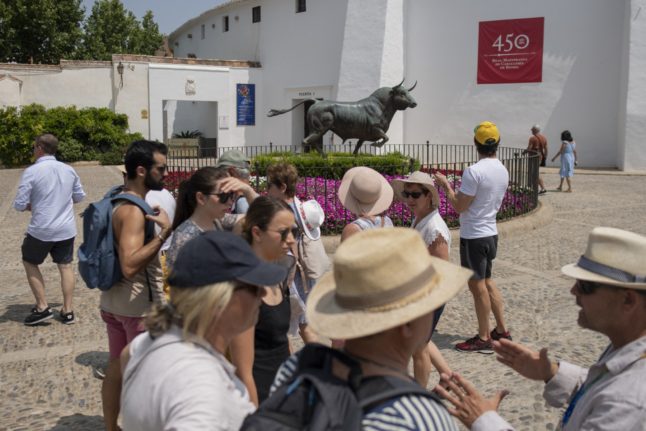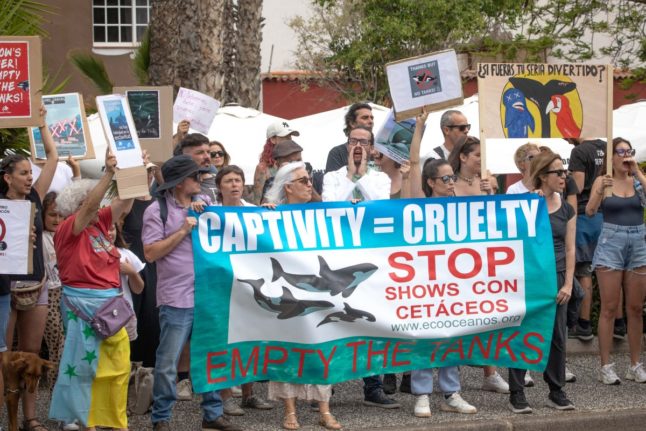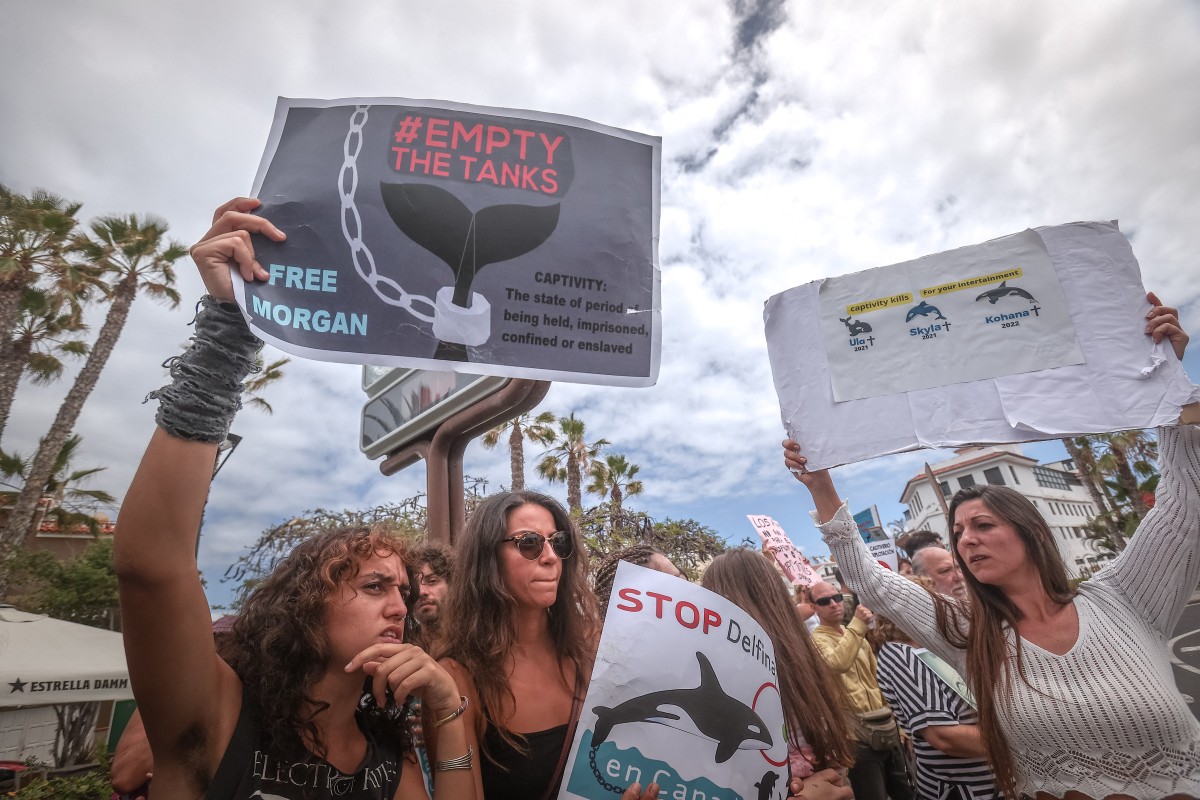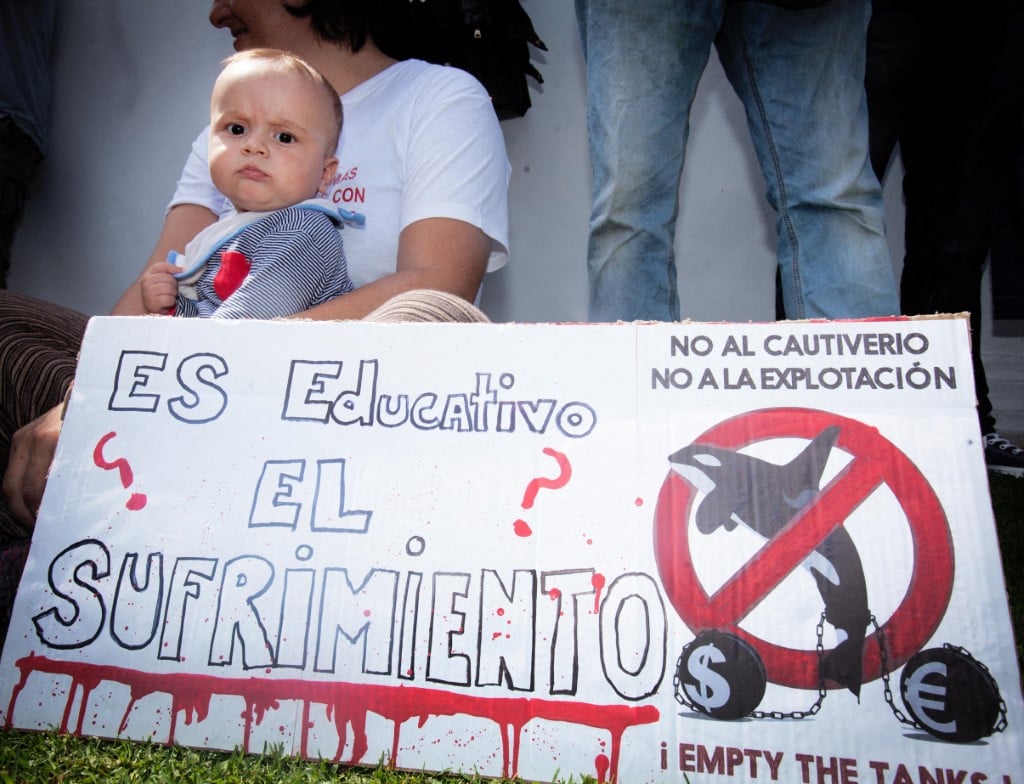Locals in Málaga are set to take to the streets in protest against mass-tourism in June, demanding an end to the ‘touristification’ of their city.
This comes after large protests in the Canary Islands in recent weeks and growing anti-tourist sentiment around the country.
Tension among locals in places such as Barcelona, Valencia, the Balearic and Canary Islands, as well as Málaga, stems from frustration with the mass tourism model and its impact on their cities.
READ ALSO: Why Spain is a cheap mass tourism destination
Often, it is also about the post-pandemic influx of remote workers and digital nomads from abroad, many of whom come to Spain to enjoy a (relatively speaking) cheaper cost of living with high foreign wages and purchasing power than many local Spaniards struggle to compete with.
READ ALSO: Mass protests in Spain’s Canary Islands decry overtourism
In this sense, much of the building anti-mass tourism sentiment brewing in Spain is bundled up in a more general (and at times somewhat confused or misplaced) anti-foreigner feeling that views outsiders, whether it be traditional tourists or digital nomads, as exploiting Spain and the expense of Spaniards.
In cities such as Málaga, locals are being priced out of their own neighbourhoods as more and more properties are turned into short-term tourist rentals owned by landlords (many of them Spaniards or commercial multi-property owners) wanting to cash in.
A growing number of Malagueños have had enough and will take to the streets on June 29th under the slogan ‘for decent housing and against the processes of touristification and precariousness of life’.
The event’s aim is to protest the tourist model in the city: ‘Málaga has become an unliveable city for those of us who live there. It is over! For a Málaga to live in and not to survive’ are among the catchphrases expected to be used at the demonstration.
Organised by the Málaga Tenants Union, the protest will challenge the ‘exploitation of housing, work and life’ in the Andalusian city.
Locals would say this has been a long time coming. In many ways, Málaga has become a victim of its own success, particularly after it was voted as the best city for foreign residents in the InterNations Expat City Ranking 2023. In the post-pandemic period, scores of foreigners have moved to the city.
READ ALSO: Why Spain’s Málaga is becoming a victim of its own success
So much so that eight out of 10 new residents moving to Málaga are currently foreigners, according to recent data from Spain’s National Statistics Institute (INE). Stats show that in 2022 Málaga welcomed a total of 56,242 inhabitants, of which 44,656 were foreigners and 11,586 were Spanish nationals.
In recent months the city has become inundated with anti-tourist stickers.
“This used to be my home” (antes esta era mi casa) , “go f*cking home” (a tu puta casa), “stinking of tourist” (apestando a turista), “this used to be the city centre” (antes esto era el centro) and “Your dead loved ones, mayor” (Alcalde tus muertos) are some of the hostile messages recently adorning walls and doors in Málaga.
READ ALSO: ‘Get the f*ck out of here’: Spain’s Málaga plastered with anti-tourism stickers
The growing foreign population, combined with the pre-existing mass tourist model, has inflated the local property market. Rental prices have increased by 16.5 percent compared since the end of 2022 and have now reached an average of €15.5/m2, stats from property portal Idealista show, while the cost to buy a home in Málaga has increased by 11 percent to an average of €3,049/m2, reaching a new historic high.
According to a study by HelloSafe, Málaga is the second most expensive province in the country when compared to the average salary, just behind Barcelona. It estimates that 81 percent of the average salary in Málaga is used on living and rent.







 Please whitelist us to continue reading.
Please whitelist us to continue reading.
Member comments